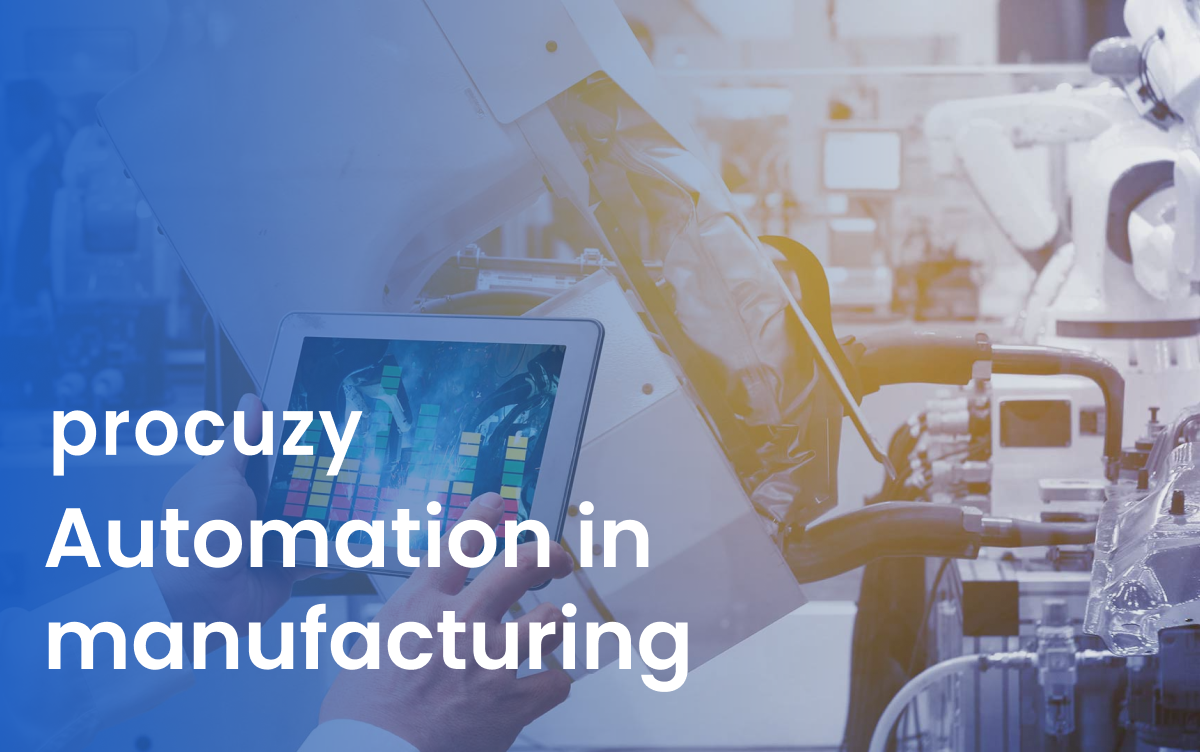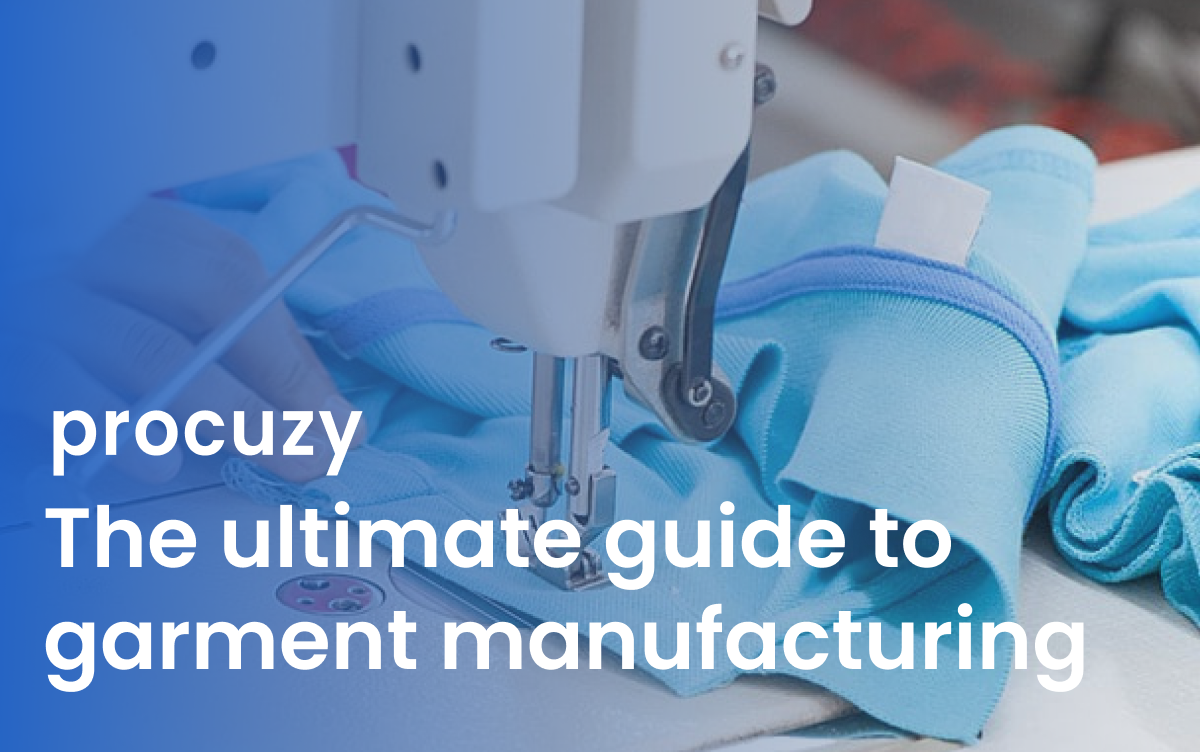
Automation in manufacturing has become a common yet effective tool in businesses. The knowledge of automation in manufacturing can help a business thrive and allow them to move on the path of success. In this blog, we will try to explore automation in manufacturing, its meaning, its advantages, different types of automation systems and much more.
Introduction
A common misconception prevails regarding automation in manufacturing. Layoffs, artificial intelligence taking over every job, for instance robots appointed in the picking and packing of products. Though this might be true for some areas in the manufacturing sector, there is a requirement of manpower to operate those. Hence, automation in manufacturing has turned from a potential threat to a basic need in the manufacturing industry.
Automation in manufacturing keeps updating and growing time to time due to continuous advancement in technology. Automation has a variety of uses, not just in manufacturing but also inventory, orders, marketing, purchasing etc. But what exactly is automation in manufacturing? Let's look into it.
What is automation in manufacturing?
Automation in manufacturing is the latest technology of using production management software in the manufacturing unit to produce goods and services. Automation in manufacturing includes the use of robotics, conveyor belts etc to enhance the productivity of the manufacturing unit. Automation in manufacturing can help organisations with various activities in order to upgrade the system. Examples of such activities are
Assembling goods - Production management software can help in assembling goods in an organised and systematic manner.
Processing the raw materials to produce the finished goods - Automation in processing can help with the processing of raw materials inti finished goods in a simplified way.
Quality inspection of inventory and finished goods - Maintaining the quality of inventory as well as the finished good is essential for maximum customer satisfaction. Automation in manufacturing can help with this.
Managing the inventory - Using the production software, inventory can be efficiently managed.
Production Planning - In production planning, production strategy and plan is clearly laid out. How raw materials and resources will be allocated to produce best results in a cost effective manner is also thought of during production planning. Automation techniques helps ease this process. Further, automation in manufacturing can also help with the following aspects of production planning-
Laying out goals and objectives of production.
Generating ways of meeting customer demands and market demands
Allocating resources efficiently to maximise production
Determining what to type products need to be produced and in what quantities.
Identification of resources required from production, for instance, labour, captial, raw materials, equipments and machinery etc
Production Scheduling - Automation in manufacturing can be very effective for production scheduling. Production scheduling refers to making a thorough and extensive timeline of the production activities. Through production scheduling, every activity can be held on specified time and order. This will help minimise wastage of time and efforts and help deliver the products or services to the customers on time. Through production scheduling, the workers in a manufacturing unit can undertake every task and activity as per the schedule. Production scheduling takes into account various factors like availability of equipment and machinery, whether labour is available at the given point of time, availability of raw materials and inventory etc. Using these informations, efficient outcome can be generated through product scheduling. And to further ease this process,
Initially, there was a designated tool to perform a particular function. However, with advancements in technology and the presence of automation in manufacturing, there has been significant upgrades in the system. Now, one tool can perform plethora of operations. This is possible due to automation.
Benefits of automation in manufacturing
Minimise costs - With the advent of automation in manufacturing, you can minimise costs. This can be done by adopting smart techniques in the business. When you track the movement of inventory and processes surrounding it, you can reduce costs. Through automation in manufacturing, one tool can perform multiple functions, This will add up to savings and reduce the additional costs.
Manage production waste - Automation in manufacturing helps manage production wastage in a way that it ensures that there isn't plenty of stock stacked, leading to surplus. No company would want more stock than the sales. This only leads to generation of more and more wastage.
Improved product quality - Automation can help improve the quality of the product as it is responsible for regular quality checks and keeping updates about the product. Through this way, any entity that is making the product inferior in any way can be eliminated.
Increased workforce productivity - Automation in manufacturing can lead to improved labour productivity through advanced technology.
Reduced manpower costs - Automation will somehow reduce labour costs as the machinery and robotics could now perform what was earlier done manually.
Combat the problem of labour shortage - In the times of shortage of labour, automation in manufacturing arises as a savior and helps combat the problem of labour shortage because thde robotics can now perform most of the works that once required manual labour.
Less errors in work - Automation in manufacturing has significantly decreased the room for error in the processes.
Reduced time required to manufacture a product - One of the greatest benefits of automation in manufacturing is that it has reduced the time required to deliver the product to the customer as the manufacturing process requires less time than it used to before. Additionally, this leads to increase customer satisfaction, which is one of the key objectives of any business.
Types of process automation in manufacturing
Procurement - The process of procurement automation can help liberate workers from hectic, repetitive tasks that require a lot of time. Instead, this can be done using procurement automation techniques, and the workers can focus on things that are more important.
Order processing - Once a business starts to grow, and the number of orders start increasing, it becomes difficult for the business to fulfil these orders. However automation in manufacturing can help resolve this problem and make the business thrive. Through automation, the following tasks can be easily fulfilled:
Keeping a control of orders and monitoring them
Tracking the orders and quickly changing to the customisations
Handling price calculations and billing
Storing customer information efficiently for future use
Quickly adapting to any order changes
Supply Chain - Automation in manufacturing helps enhance your supply chain, ultimately leading to decreased delivery timings and increased customer satisfaction.
Customer Service - Automated customer service including automatic responses to questions and much more will help the business grow exponentially due to enhanced customer satisfaction.
Conclusion
Automation in manufacturing unit can be enhanced and simplified using Procuzy cloud manufacturing software. Procuzy aims at providing a one stop solution to all your queries regarding manufacturing and can streamline your business using enhanced tools like automation.
FaQs
Q) What does automation stand for?
Automation is connected to the word “automatic”. Automation in manufacturing is the latest technology of using production management software in the manufacturing unit to produce goods and services. Automation in manufacturing includes the use of robotics, conveyor belts etc to enhance the productivity of the manufacturing unit.


